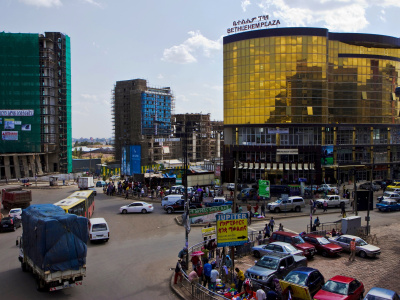
Debt Relief - "Where Do We Stand, Where Do We Go?" – Volume 2, Issue 1 (January 2013)
Editorial
By San Bilal
At a time when Europe and the US are struggling with their own debt challenges, the debt burden of developing countries no longer captures the headlines. Over the last decade ...
The Slate is Clean. What's Next?
By Dominique de Crombrugghe de Looringhe and Ruerd Ruben
In the early 1970s, many developing countries took out loans from Western banks at favourable rates. Part of this money ...
Assessing Donor-driven Debt Relief Initiatives. A Brief Overview of Theory and Practice
By Danny Cassimon
Since the introduction of the ‘Heavily Indebted Poor Countries’ (HIPC) Initiative in 1996, its enhancement from 1999 onwards, and the further introduction, in 2005 of its ...
Thirty Years after the Outbreak of the Third World Debt Crisis: The Need for a New Deal on Debt
By Jürgen Kaiser
Debt relief (i.e. free iva) is like putting out a fire: It is absolutely necessary, but it does not guarantee that the house won't be on fire again. This is, why a deliberately one-off relief scheme ...
Debt Relief as a Development Tool: The Role of the Paris Club
By Clotilde L'Angevin
Debt relief granted by creditor countries to highly indebted countries significantly contributes to these countries’ development needs, by providing regular and foreseeable ...
What Comes after Debt Relief? Some Preliminary Thoughts
By Jeffrey D. Lewis
With major debt relief initiatives (HIPC, MDRI) winding down, what comes next? How can we evaluate the success of these efforts which took decades? Has there been any lasting impact? Are there lessons for what might come next? ...
Debt Relief: The Norwegian Approach
By Per Kristian Roer
The Heavily Indebted Poor Countries (HIPC) initiative and the Multilateral Debt Relief Initiative (MDRI) remain the cornerstones of Norwegian debt relief policy ...
Debt Sustainability and Borrowing Capacity in Africa
By Yuefen Li
The prevailing sentiment in Maputo these days is similar to being pulled up the track of a rollercoaster: a combination of excitement and insecurity about what is to come. One is ...
Is Debt Relief a Development Tool?
By Arnaud Zacharie
External debt can be a heavy burden for development when debt service represents the major share of public spending and exports revenue of a developing country. Such a burden ...
Cleaning the External Debt Slate. What Difference Does it Make for Development in the DRC?
By Stefaan Marysse, Danny Cassimon, and Karel Verbeke
On June 30th, 2010, at the celebration of its 50th anniversary of independence, the external debt slate of the DRC was ...
Assessment of the Heavily Indebted Poor Countries Initiative in the Democratic Republic of Congo By Jean-Claude Lapole Kanga
In 1996, the governments of Mozambique and South Africa, in a renewal of cooperation and in order to re-establish trade ...
Debt Relief and Development: The Case of the 2005 Debt Relief Agreement in Nigeria
By Geske Dijkstra
In 1999 Nigeria became a democracy again after a long period of dictatorship. One of the top priorities for the newly elected ...
Debt Relief and MDGs in Nigeria: Progress Achieved by the Office of the Senior Special Assistant to the President on MDGs
By Christopher Otabor
Six years after Nigeria gained her independence from her British colonial masters, the first coup d'état took place in 1966.
Sustainability of the Debt Relief - Nigeria's Case
By Abraham Nwankwo
Starting from the mid-1980s, Nigeria’s external indebtedness ratios stayed at critical levels, surpassing the thresholds for sustainability. Nigeria approached the Paris Club for the rescheduling of its debts three times 1986, 1989 and 1991 ...
- EPA Update Calendar and Resources Monthly Highlights from ECDPM's Talking Points Blog
-- About GREAT Insights --
Read GREAT Insights Volume 2, Issue 1 [gview file="http://ecdpm.org/wp-content/uploads/2013/11/GREAT-Insights-2-1-Debt-Relief-Where-Do-We-Stand-Go-2013.pdf" save="1"]



